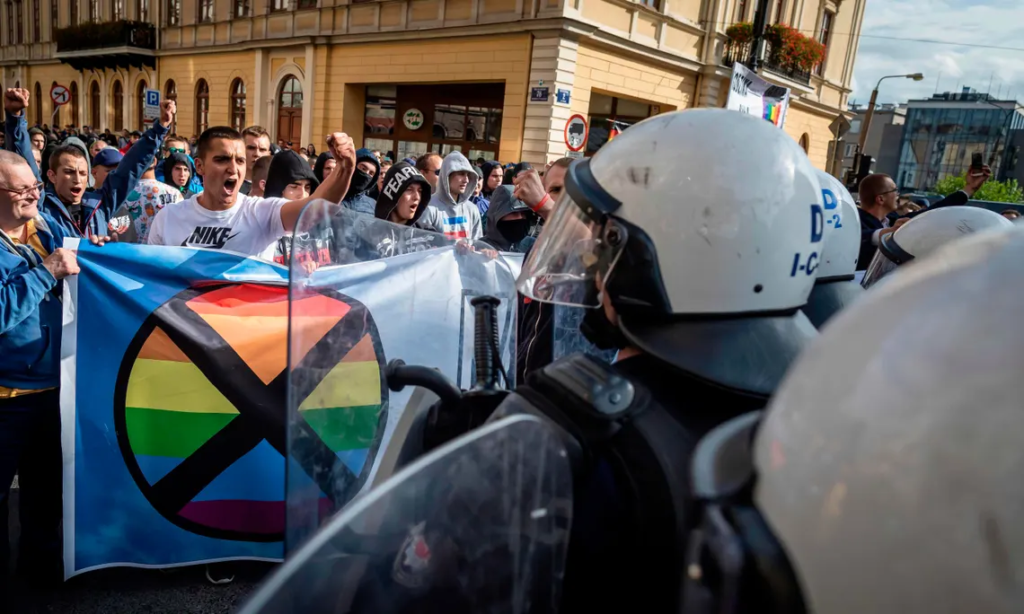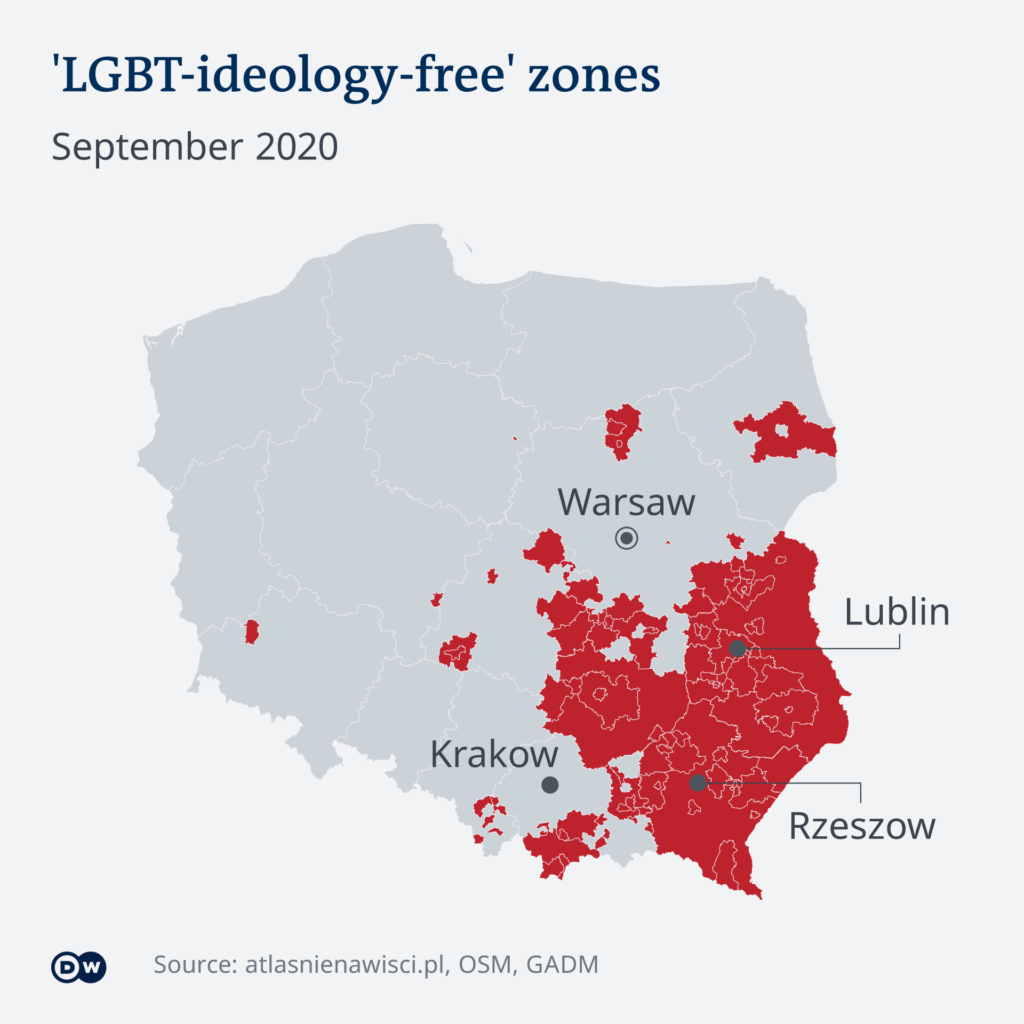
Photograph by Wojtek Radwański. AFP/Getty Images.
Eastern Europe’s anti-LGBTQ+ Stance
LGBTQ+ communities and policies have been under attack in Eastern Europe in the past few years. The rise in populism, nationalism, and far-right extremism have created paths for right-wing extremists to accelerate anti-LGBTQ+ policies. In Hungary, Prime Minister Viktor Orbán has been a vocal opponent of the LGBTQ+ community. Orbán’s policies include the banning of adoption by same-sex couples, creating extensive barriers for transgender people to legally change their gender, banning LGBTQ+ content from being shared with minors, and even banning same-sex marriage. These restrictions were aided by regulating education to constrain LGBTQ+ content in classrooms. These policies not only thrived in Hungary, but Orbán influenced American conservatives, primarily in Florida.
In Bosnia and Herzegovina, for example, homosexuality is legal but same-sex marriage is still not recognized. Hate speech and anti-LGBTQ+ violence persists. Since the end of the Bosnian War in 1995, Bosnia’s liberal Islam has been progressively being replaced by conservative Saudi Wahhabi Islam. Conservative Islam, which diverges from their counterparts in Bosnia and Herzegovina, views homosexuality as immoral. Public polling conducted by the World Values Survey and the Pew Research Center in Bosnia and Herzegovina between 2017 and 2020 shows 68.7% disagree on same-sex couples being parents, 84% oppose support for same-sex marriage, and 82% said society should not accept homosexuality.
Other countries in Eastern Europe have seen regressive LGBTQ+ policies being embraced by governments and populace. Poland, Latvia, and Lithuania do not acknowledge same-sex marriage, while capitalizing on homophobic rhetoric and attitudes within their societies. Some Eastern European countries continue to promote sexual stigmas embedded in their legal systems.

Poland, a member of the European Union, has gained notoriety for its anti-LGBTQ+ rhetoric and policies. In 2019 numerous regions and localities in Poland declared themselves “LGBT-free Zones”, which would then be forced to be abolished three years later. Poland has recently gone as far as blaming “LGBT ideology” for a sharp rise in child suicides, which was weaponized to bolster the return to traditional values. Although being forced to be abolished, religious conservative politicians in Eastern European nations continue to pass homophobic and transphobic laws, at times testing unity within the European Union.
According to an article by Tony Wesolowsky from Radio Free Europe – Radio Liberty, group and governments that are anti-LGBTQ+ tend to conceive their rhetoric from far-right and nationalistic ideologies. The beliefs of these groups and movements go beyond national borders. Eastern European anti-LGBT policies could be inspired by similar policies in Western Europe, or even the United States. They reinforce the heteronormative lifestyles and sexualities.